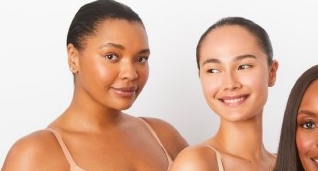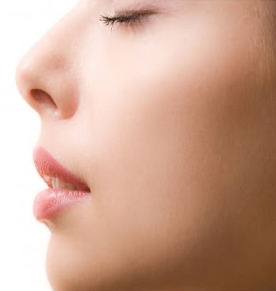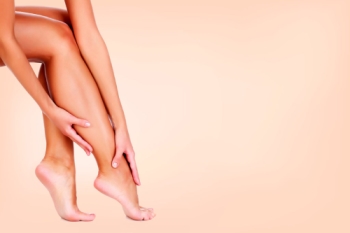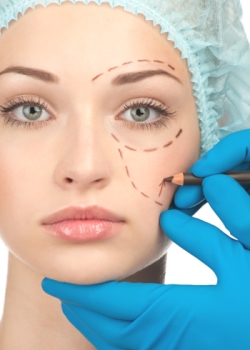Inclusive Online Beauty Store to Open First Brick and Mortar Store

Cette section contient des liens d'affiliation/This post contains affiliate links. Consulter la divulgation ICI/Read the full disclosure HERE.
Inclusive Online Beauty Store To Open First Brick and Mortar Store in Los Angeles !
In early 2023, new retail store Thirteen Lune has opened. Located in the heart of Larchmont Village in Los Angeles, it mainly showcases BIPOC skincare, makeup and haircare brands.
But What exactly are BIPOC beauty brands ?
BIPOC actually stands for Black, Indigenous, and People of Color. For Black and brown people, it is obvious that a lot of skincare conditions problems manifest differently. For them, skincare has not been democratized.
Granted, we have gotten to the stage where different hair types and textures needs have been taken into account and yet we have not reached that stage in skincare. There still seems to be a racial gap in skincare representation and information with all Black people being lumped together when it comes to their skincare needs.
That’s the reason why having a space where people can post a picture and talk about the issues they are dealing with is so important. These online communities exist and they provide the information that is not available to consumers who could not otherwise find solutions to their specific skin issues.
Still, a recent personal care and beauty shopping study shows that young BIPOC consumers are at the top of the skincare trend. And that’s why some believe there is still room for skincare brands to fill a need for an audience ready to be catered to.
However, representation is not the only a concern since darker skin tones and even Asian skin tones have different collagen percentages compared to their White/non-Hispanic peers as well as different melanin levels. And that affects how product penetrates the skin and how it works.
Unfortunately, because skincare products focus on lighter skin tones, most black people are rarely the target audience when it comes to makeup or skincare. There seems to be a stereotype around Black consumers as the beauty and skincare industry assume they are not interested in luxury products.
However, it is the complete opposite since BIPOC consumers continually show their appreciation for beauty and care services and also provide hundreds of thousands to the industry every year. A recent research also confirms that Black consumers consistently outspend the total market on personal soap and bath needs.
Although BIPOC consumers and particularly Black people are more likely to claim that they shop at high-end stores, they are typically deemed less likely to spend money on luxury beauty and skincare products in brick-and-mortar stores.
BIPOC More Likely to Resort to Personal Care and Beauty Routines
A recent research looks at how young consumers beauty routines and personal care were changed by the pandemic and explores the trends they follow, their beauty routines and purchases.
During COVID, young consumers relationship with personal care and beauty has changed as they began to give priority to skincare over putting on makeup, making their skincare routine more structured in the last two years.
It looks like we have entered into a time where people do not want to cover up their skin any more. They would rather get to the root of the issues they have and ask questions such as : why is my skin flaring up ? Others seem to have taken an interest in other skin conditions like acne, eczema…
And as for BIPOC young consumers, they are getting very serious when it comes to taking care of their skin. Some 13-39-year-old BIPOC consumers are coming up with more elaborate routines. They even sometimes have a more structured skincare routine compared to their white / non-Hispanic peers. And emerging beauty brands from all over the world have consequently found new ways to help young consumers develop their own skincare routines.
Another review also shows that BIPOC females are investing in skincare even more than other communities. If we look at the skincare routines of young BIPOC compared to their White/non-Hispanic counterparts, below are rwo key differences that highlight how BIPOC young consumers are driving the skincare trend :
- Most BIPOC young consumers skincare routines have become more structured during lockdowns, with 70% of 13-39-year-old BIPOC young consumers with skin conditions like flare-ups, claiming their skincare routine has become more elaborate in the last two years compared to 60% of White/non-Hispanic consumers.
- New skincare brands are now paying attention to BIPOC young consumers needs and have started to target BIPOC young customers who wish they could avoid issues many mainstream skincare products may bring (like dark spot correctors) when these are created with white skin in mind.
Other new skincare brands are addressing important issues (color cosmetic, retail hair color and styling when it comes to BIPOC skin. For example, three brands are offering products specifically designed to treat darker skin without lightening it and formulated specifically for melanin-rich type skins :
Eadem (founded by Marie Kouadio Amouzame and Alice Lin Glover), Beauty and Personal Care @ Unilever (founded by Esi Eggleston-Bracey and Sarah Irby), and Ustawi (founded by Natacha Paugam).
Skincare as Self-care ?
For instance, during the pandemic, some personal care brands have been introducing skincare features to appeal to those BIPOC who prefer a more natural look and meet their demand.
Additionnaly, MAC Cosmetics has put onthe market skincare ingredient-infused items that offer a natural makeup look for BIPOC consumers.
Also, if you look at both genders, it seems that one in three BIPOC males have a skincare routine right now. Therefore, beauty and personal care brands are launching products that tailor to men as well.
Another review found that half of BIPOC young females in the U.S. do not feel like there are enough skincare products and services for them. That is one of the reasons why BIPOC young consumers are looking for skin tutorials by influencers who look like them and promote products for people with melanin-rich type skins and hyperpigmentation and dehydrated skin issues.
BIPOC Luxury Skincare Consumers Are Building Communities on Social Networks
Skincare is much more than correcting dark spots and reducing the effects of aging. Nowadays, black consumers spend close to $1.5 trillion each year, a number that is supposed to rise to $2 trillion by 2023.
And yet, marketing of beauty products, especially in the luxury skincare space, rarely focus on BIPOC. But online communities are there to provide education and a sense of community. And if one thing is still clear it is that trust is key when it comes to getting new customerss and purchases.
For years, some BIPOC influencers have been trying to fill a space sharing their thoughts about the need for beauty tutorials, creating their own content around women with melanin-rich skins. This in turn has allowed BIPOC consumers to engage with people who are dealing with similar issues and to find luxury products that actually work.



